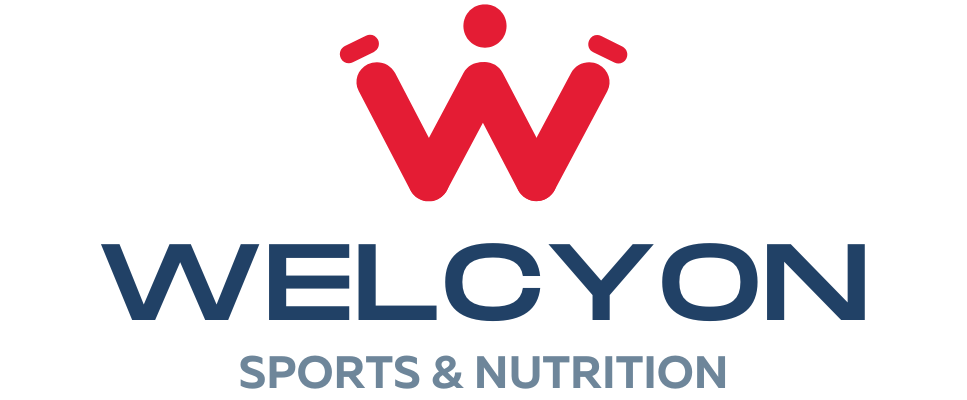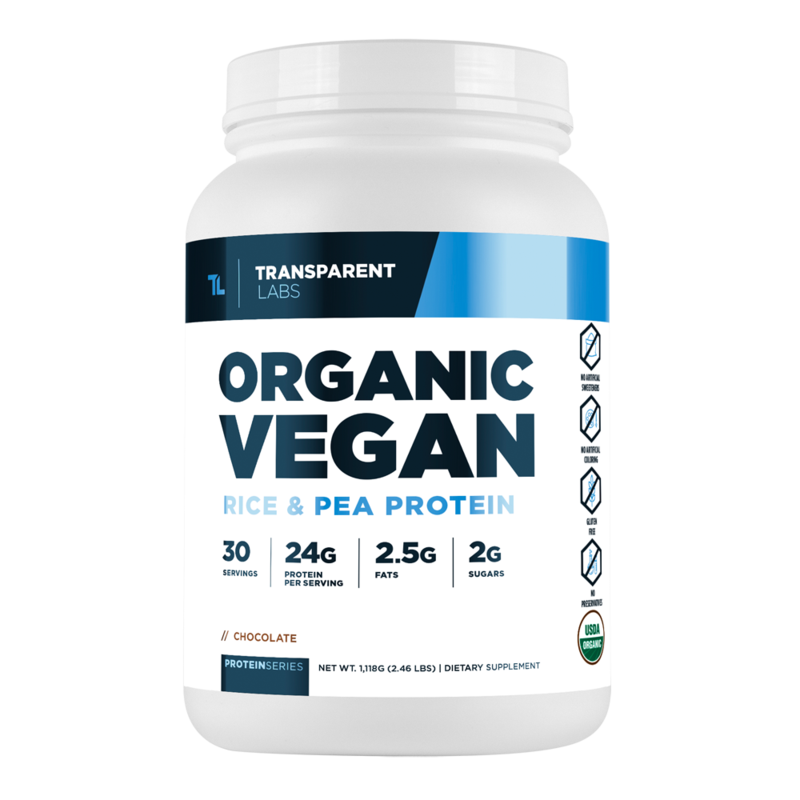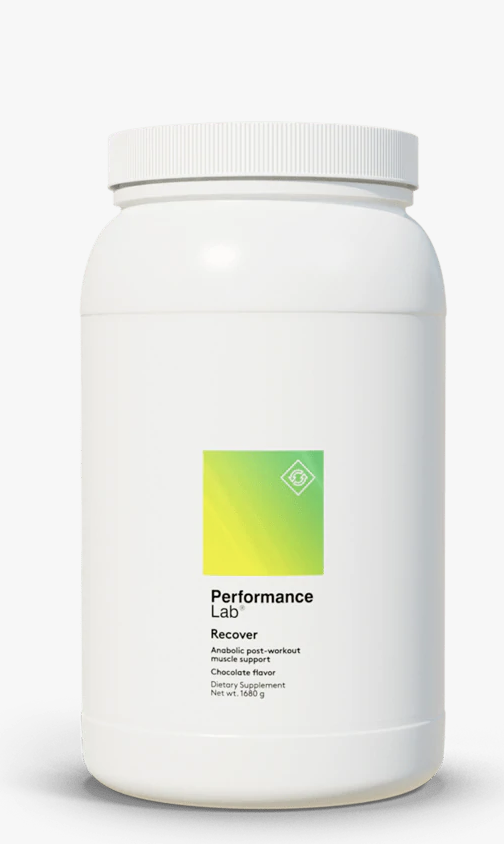23
Products Considered
169
Hours of Research
8
Experts Interviewed
54
Customers Consulted
If you are lactose intolerant like me, consuming products that contain it can cause issues such as bloating, cramps, gas, etc.
When I found out about my issue, finding a lactose-free protein powder was one of my first priorities. To my surprise, a number of brands produce such products.
After researching for a decent amount of time, I narrowed it down to the following five protein powders:
Editor's Choice
Made using organic brown rice, this product provides 20 grams of protein per serving. It also comes with additional health benefits such as bone and blood health enhancement.
Key features
• Completely organic
• Absorbs 30% faster than whey protein
• Contains all essential amino acids
#3rd Best Choice
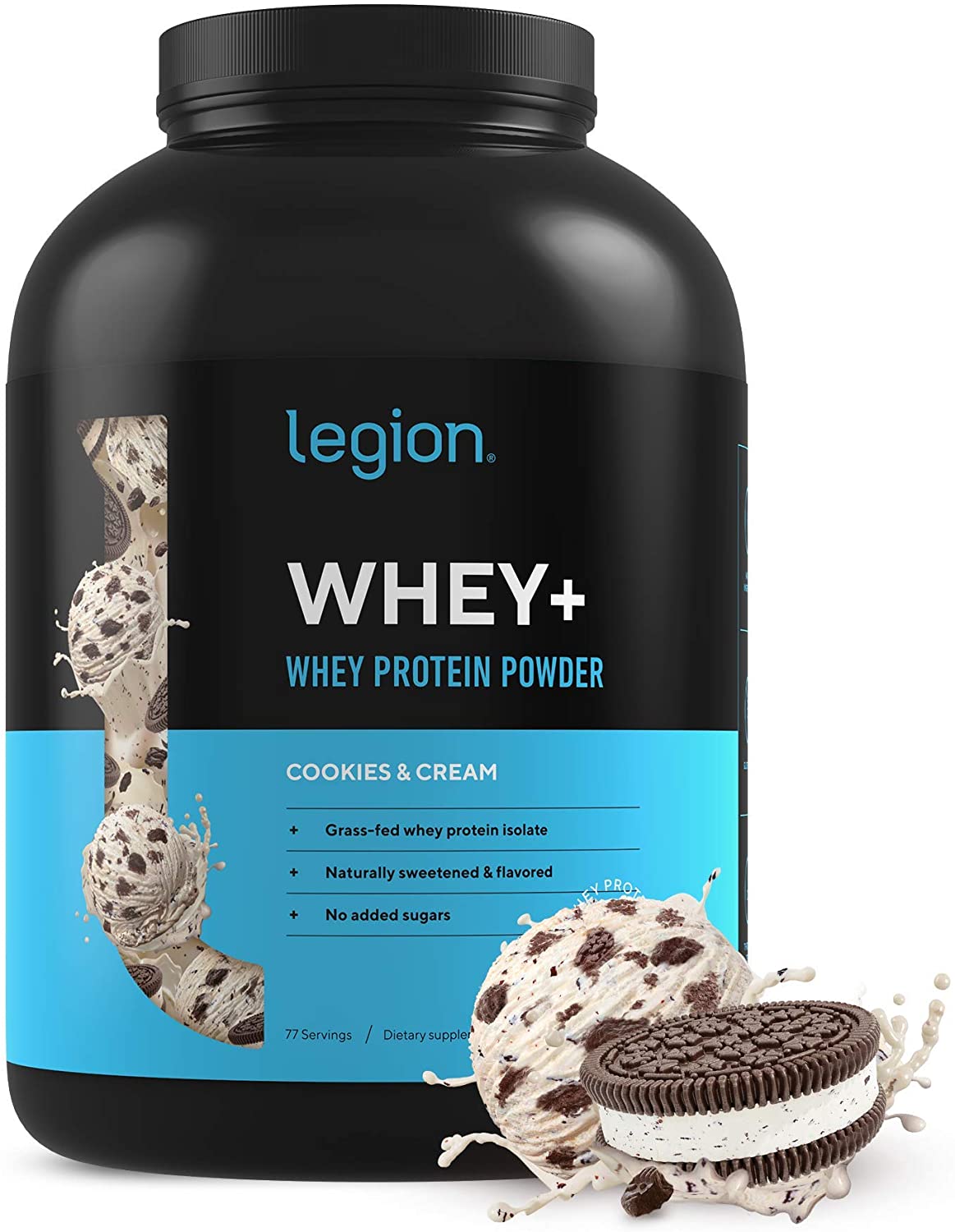
Made with the milk of grass-fed cows, this product supports muscle growth and enhances muscle recovery.
Key features
• Low in fats and carbs
• Non-GMO and gluten-free
• Multiple flavor choices
The Best Lactose Free Protein Powders
1. Best Protein For Lactose Intolerants:
Organic Protein by Transparent Labs
Transparent Labs’ proprietary blend of rice and pea protein is one of the most celebrated supplements on the market. In addition to its 24 grams of protein per serving, this unique formula boasts 4 grams of dietary fiber to help support digestive health.
The protein powder's GMO-, preservative-, and gluten-free formula means it can be enjoyed by nearly anyone while still promoting muscle growth.
This plant-based protein powder is lactose-free, contains natural ingredients, and uses 100% organic rice and pea protein. If you're looking for a simple choice that will make it easy to build lean muscles, this satiating formula will do the trick!
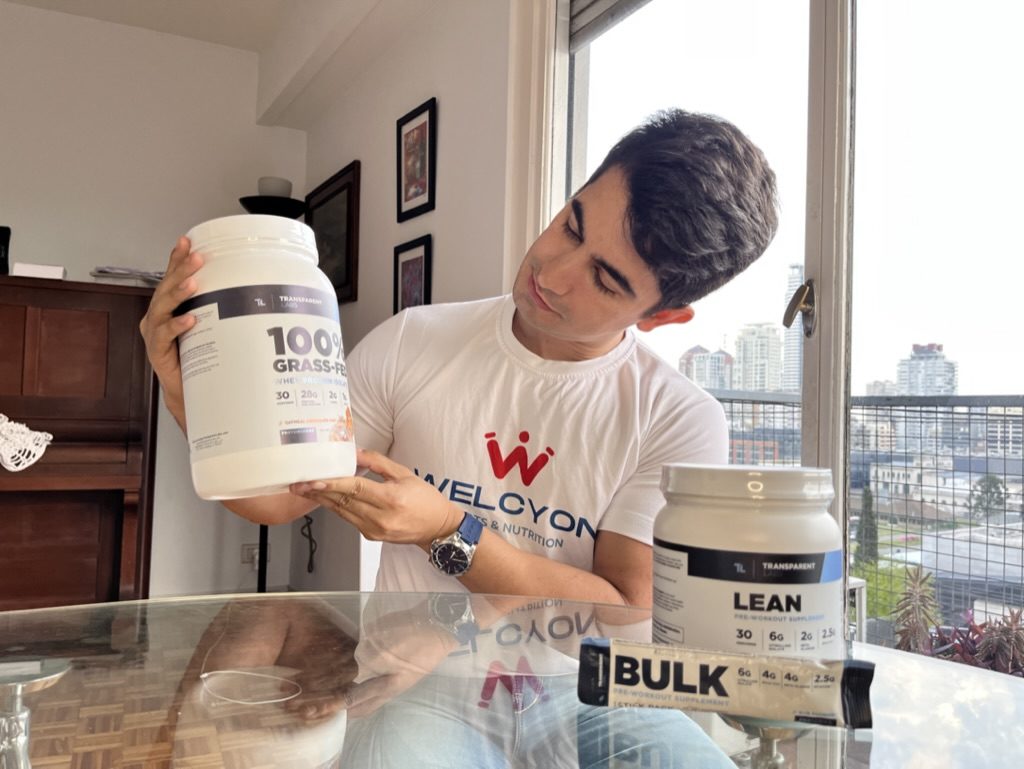
I love this protein shake for so many reasons. First of all, there is the good texture. And this protein powder just needs you to add water as the base liquid and you're good to go—no fuss, complications, or extra steps required. That's incredibly convenient for me because I need to have a wholesome meal when I'm in a rush. Plus, the flavor is awesome!
Pros:
Cons:
2. Performance Lab Sport Protein Powder (Best for Post Workout)
Filled with brown rice protein, the Performance Lab Sport Protein Powder is certainly the best lactose-free protein powder at the moment.
It is a concentrated protein powder that absorbs 30% faster than whey protein. In terms of muscle-building quality, it is known to match the quality provided by chicken breast.
If that wasn't enough, this protein supplement also offers a number of benefits such as blood, oxygen, and bone density enhancement.
In terms of flavor, it is a blend of multiple flavors which I was really awed by considering that it does not contain any artificial sweeteners.
Pros:
Cons:

Specifications:
Protein per serving - 21 g
Calories - 130
Carbs - 4 g
Fat - 3 g
Flavor - Cookies & Cream, Chocolate Peanut Butter, French Vanilla, etc.
Protein Source - Whey protein isolate
Type - Isolate
Legion Whey+ Whey Isolate Protein Powder is made using exceptionally high-quality milk of grass-fed cows in the farms of Ireland. This kind of quality is extremely hard to match.
Like most whey protein powders, this product supports muscle growth and enhances muscle recovery. But since it is an isolated product, the carb and fat content in a single serving is quite low.
As for the flavor, it comes with popular choices of chocolate and vanilla alongside a few outside-the-box flavors such as Cinnamon Cereal as well.
Pros:
Cons:
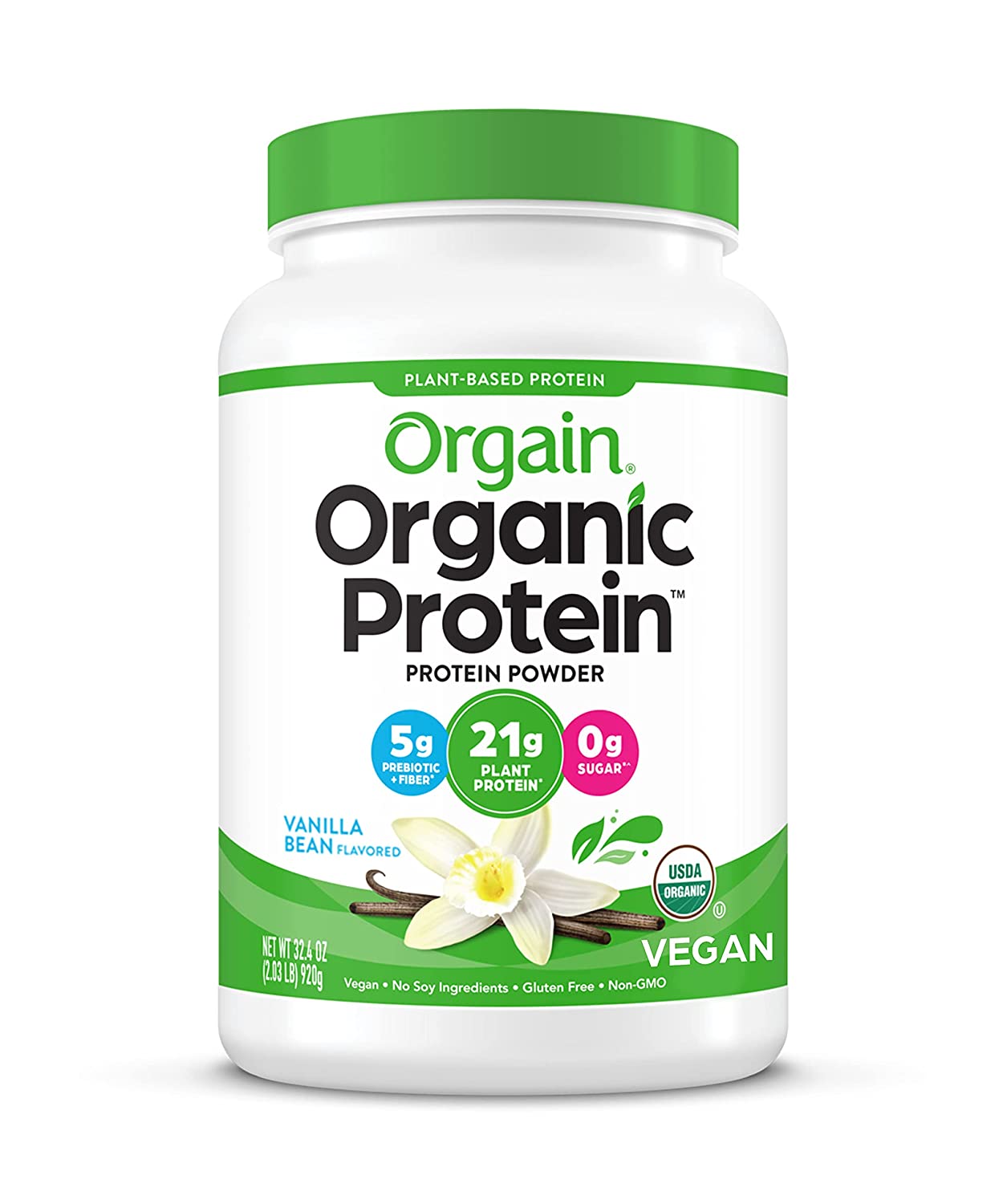
Specifications:
Protein per serving - 21 g
Calories - 150
Carbs - 15 g
Fat - 4 g
Flavor - Vanilla Bean
Protein Source - Brown rice, pea protein, chia seed
Type - Concentrate
The Orgain Organic Plant-Based Protein Powder is made using a blend of brown rice protein, pea protein, and chia seed.
It is slightly high in carbs. Therefore, it might not be the greatest choice for losing weight. However, if you are in a bulking phase, going with this lactose-free protein powder can do you wonders.
It is free from gluten, soy, and carrageenan. Despite having no artificial sweeteners, it comes in a nutty Vanilla Bean flavor.
Pros:
Cons
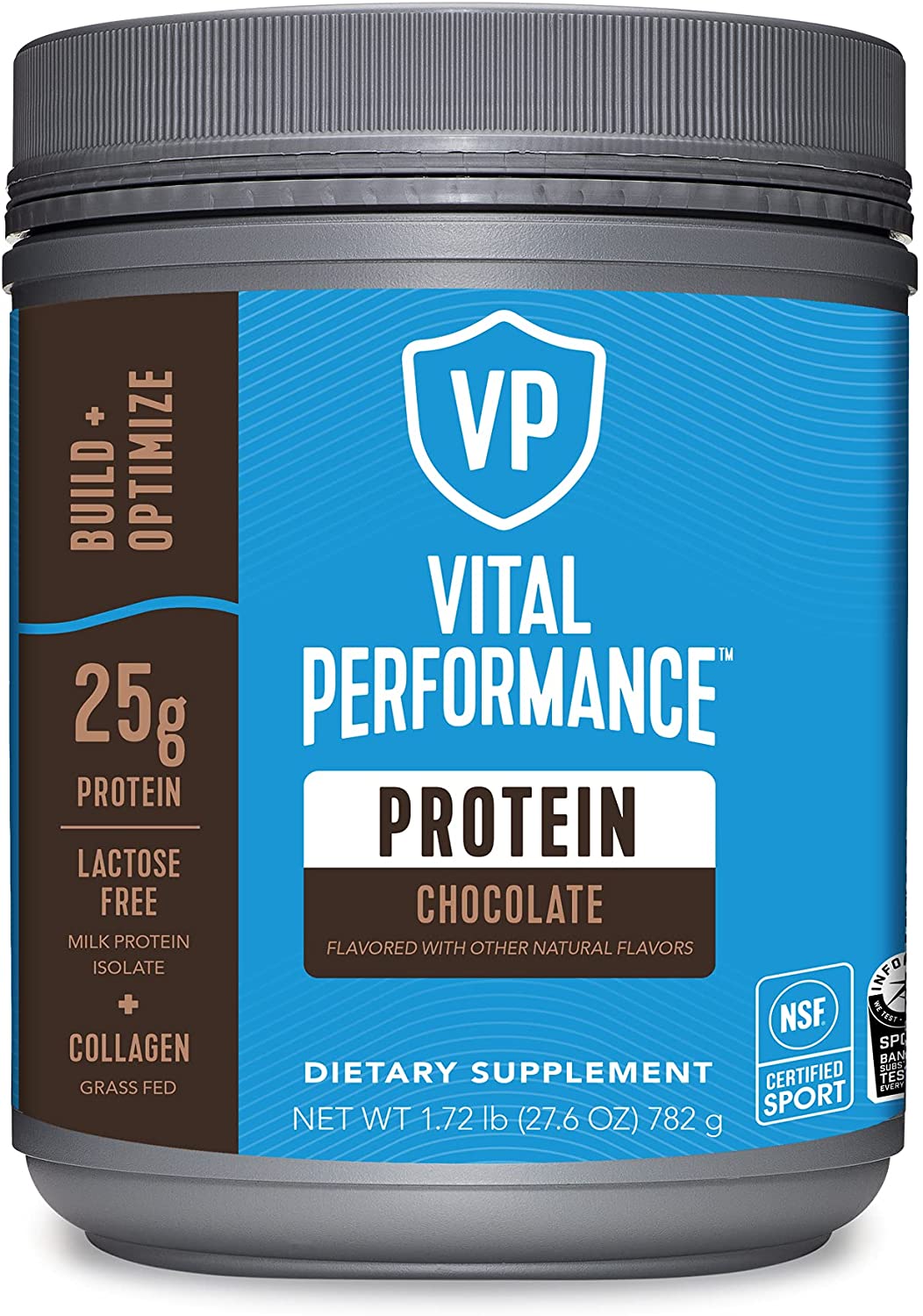
Specifications:
Protein per serving - 25 g
Calories - 130
Carbs - 6 g
Fat - 0 g
Flavor - Strawberry, coffee, chocolate, and vanilla
Protein Source - Whey protein isolate
Type - Isolate
Another whey protein isolate in the list, the Vital Performance Protein Powder provides the best in class protein content per serving.
It contains six grams of carbohydrates which is slightly above average. However, its fat content sits at absolute zero which goes a long way in weight loss.
Other than the impressive macronutrient distribution, it also comes with 10 g Grass-Fed Collagen Peptides, 8g EAAs, 5g branched-chain amino acids. This helps in promoting healthy bones, joints, and tendons while also providing a fast recovery time.
As for flavor, you get multiple options including popular choices of chocolate and vanilla.
Pros:
Cons:
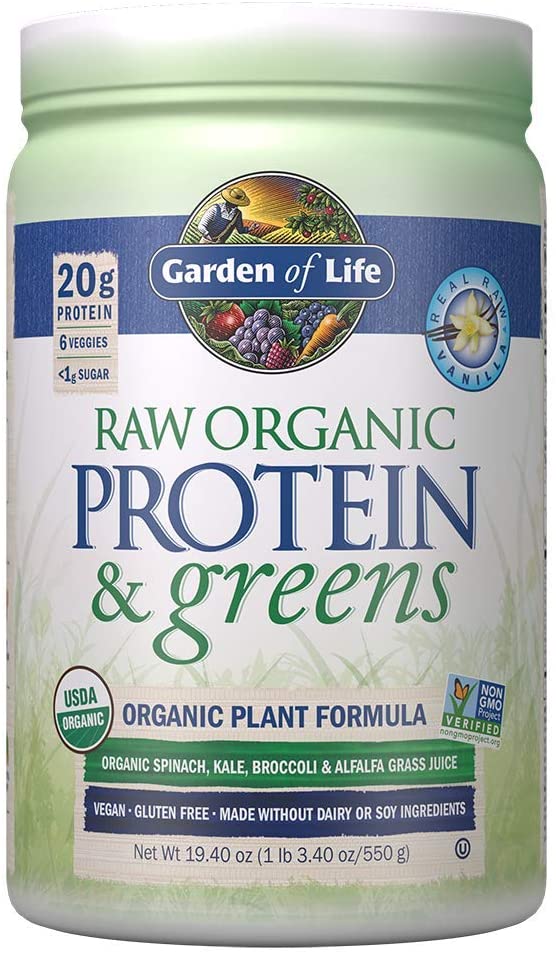
Specifications:
Protein per serving - 20 g
Calories - 100
Carbs - 3 g
Fat - 1 g
Flavor - Chocolate, vanilla, vanilla chai, and unflavored
Protein Source - Brown rice
Type - Concentrate
This was my favorite product in terms of taste. I tried the chocolate-flavored variant and it had a nice aroma and sweetness that was done just right.
Unlike most vegan protein powders, the Garden of Life Raw Organic Protein Powder is a lactose-free protein powder that is very low in carbs and fats.
Due to this, you can use it to lose weight with ease.
As the brand also provides an unflavored option, you can also turn to it as a base to make smoothies while bulking. In short, you get the best of both worlds with this product.
For people with dietary restrictions, this vegan protein powder is a great choice since it is free from soy, dairy, lactose, gluten, and sugar.
Pros:
Cons:
Buying Guide – How To Choose The Best Lactose Free Protein Powder?
Choosing a lactose-free protein powder is no easy business.
Apart from the obvious factor of being free from lactose, there are a number of things you must keep in mind before investing in one. Here are a few of them:
Type of Protein Powder
Lactose-free protein powders come in various types based on ingredients. Here are a few you can consider:
1
Brown rice protein powder: When it comes to plant-based protein powders, brown rice tops them all. Unlike solid brown rice, these protein powders contain very minimal carbohydrates. Therefore, they are great to lose weight.
Related reading: Best Rice Protein Powders
2
Whey protein isolate: Yes. There are lactose-free protein powders made from whey protein. Just lookout for the tagline that says lactose-free and you are good to go. What I like about whey protein powders is their high protein content. You can almost never go wrong with them.
3
Beef protein: Beef protein powders aren't the most common. However, they are a great choice for lactose intolerant people. They are generally very high in protein and low in other macronutrients.
High protein content
With lactose-free protein powders, you get the luxury of choosing from a number of options.
I always prefer at least 20 grams of protein per serving in my protein powders and so should you regardless of your dietary restriction(s). [1]
Going with a high protein content can provide the essential benefit of boosting your daily protein intake while also avoiding any intolerances and allergies.
Match it with your goals
While getting protein is an invariably true objective for all, not everybody buys a lactose-free protein powder for the same goals.
Some want to lose weight while some wish to bulk.
If you are a part of the former, getting a protein powder with high protein content and low carb and fat content makes the most sense.
On the other hand, if you want to bulk up, you can buy any protein powder and it shall work. For products with low calories and an uneven macronutrient split, you can just add more extra ingredients.
Flavors
I don't know about you but I am addicted to chocolate and vanilla flavored protein powders.
If you are also like me, go for a flavored lactose-free protein powder to make the tastiest protein shakes.
On the other hand, if you intend to make protein smoothies, going with an unflavored option will go a long way since you can customize it exactly how you want it.
Benefits of a Lactose Free Protein Powders
Lactose-free protein powders provide a number of benefits to their users. Here are a few major ones:
Helps in building muscle
Your body needs about 1 g of protein per pound of bodyweight to gain muscle. [2]
Like all protein powders, the primary benefit of a lactose-free protein powder is to provide the user with an adequate amount of protein.
Therefore, you reach one step closer to packing on muscle mass.
Helps in weight loss
Losing weight always boils down to a caloric deficit. [3]
If you are eating under your maintenance calorie figures, you will lose weight.
Consuming lactose-free protein doesn't directly impact your weight loss. However, a high protein diet keeps you satiated for a long time ensuring that you consume a limited number of calories.
Frequently Asked Questions (FAQs)
Q. Do protein powders have lactose?
A. Protein powders come with both lactose-free and lactose-filled options. Therefore, it is up to you which you prefer to buy. If you are lactose intolerant, it is highly advisable to consume a lactose free protein powder.
Q. Can a lactose intolerant person drink whey protein?
A. People with lactose intolerance can drink whey protein powders that do not contain lactose. As long as you fulfill that criteria, you are good to go.
Q. Are lactose-free protein powders good for everyone?
A. Though they are primarily designed to avoid complications with lactose intolerance, lactose-free protein powders can be consumed by everyone. However, if you have another dietary restriction, it is advisable to check for your specific restriction in the product specifications before buying.
Q. Do protein powders help you gain muscle?
A. Building muscle requires you to consume about one gram of muscle per pound of body weight. Consuming a protein powder can help you tremendously in achieving this feat. Therefore, they are a great choice for gaining muscle mass.
Q. What happens when a lactose intolerant person a lactose-filled protein powder?
A. There are no serious complications to drinking lactose-filled protein powders. However, since the effects arrive every time you consume your protein supplement, going with a lactose-free protein powder is a glaringly obvious move.
Addressing Controversies
Lactose intolerance has seen a significant rise in pop culture in recent times.
According to modern medicine, about 65-70 percent of the human population has a reduced ability to digest lactose after infancy. [4]
As you can see, this is a commonly seen problem.
While the complications aren't huge, going on a lactose-free diet makes sense for most people.
If you use a protein powder, I can't stress how important it is to use a lactose-free product if you are intolerant considering how frequently you are going to consume it.
Conclusion
Lactose intolerance is a commonly seen problem today. Therefore, most brands produce a lactose-free option when it comes to protein powders.
As for my favorite one, it would have to be the Performance Lab Sport Protein Powder. Made out of organic brown rice, this protein powder absorbs 30% faster compared to whey protein. It also provides a number of additional benefits such as blood and bone health enhancement which makes it a super product.
In the second place, I would put the Legion Whey+ Whey Isolate Protein Powder. Despite being a whey protein powder, it is lactose-free. What I liked about this supplement is that it provides a plethora of flavor choices to choose from.

Samrudha Salvi ‧ Co-Founder & Nutritionist (Stanford)
Samrudha is a certified nutritionist and also a Co-founder for Welcyon.com. He has also featured in many publications including CNBC, Entrepreneur amongst others. He brings more than 10 years of experience with him.
References:
1. Emily Gelsomin, MLA, RD, LDN, The scoop on protein powder, retrieved from https://www.health.harvard.edu/blog/the-scoop-on-protein-powder-2020030918986
2. Brad Dieter, Protein and weight loss: How much protein should you eat to lose weight?, retrieved from https://blog.nasm.org/nutrition/how-much-protein-should-you-eat-per-day-for-weight-loss
3. Mayo Clinic, Counting calories: Get back to weight-loss basics, retrieved from https://www.mayoclinic.org/healthy-lifestyle/weight-loss/in-depth/calories/art-20048065
4. Medline Plus, Lactose intolerance, retrieved from https://medlineplus.gov/genetics/condition/lactose-intolerance
